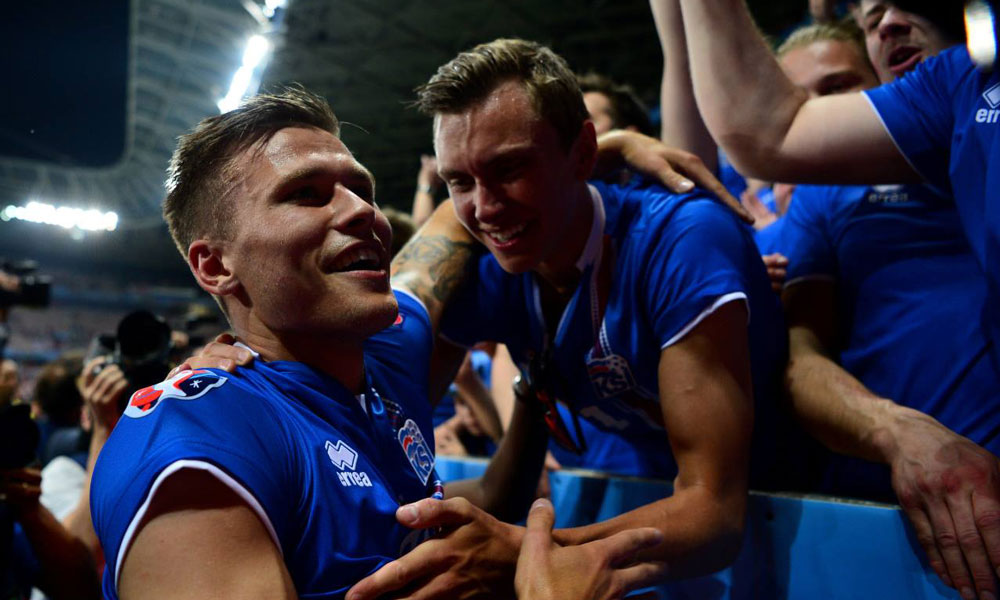
The Association That Gave Iceland’s Soccer Team Its Power
A stunning upset of England's national soccer team by Iceland's team caught a lot of sports fans off guard. But that success was no accident; it required a lot of infrastructure planning on the part of a local football association.
Iceland’s upstart status in this year’s European championship soccer tournament turned a lot of heads over the weekend after the country took down England in a stunning upset.
The country, with a population of just over 327,000, came into its Euro 2016 success thanks, in part, to a few well-considered decisions by the country’s primary soccer trade group, Knattspyrnusamband Íslands, or the Football Association of Iceland.
You could see it coming—maybe not beating England, but you could see they would be competitive and would end up in a final tournament.
A Reuters piece notes that the local football association invested heavily in indoor facilities so Icelandic players can play soccer year-round, even in wintertime when temperatures and daylight hours plummet.
A key element of this success involved the decision by the local football association to set up the fund, supported by a Union of European Football Associations (UEFA) program, to pay for the creation of these soccer fields. The investment came at a particularly tenuous time for Iceland—its 2008 economic crisis.
On top of this, Slate notes that the association worked to make it easier for Icelanders to receive UEFA-approved coaching training locally. Previously, coaches had to head to mainland Europe to receive similar training.
As a result of these efforts, Iceland quickly started to rise in the world rankings, and soon became hard to ignore, noted UEFA’s Interim General Secretary, Theodore Theodoridis.
“You could see it coming—maybe not beating England, but you could see they would be competitive and would end up in a final tournament,” Theodoridis told Reuters. “If you look back over the last four years their under-21s and under-19s qualified more often than in the past.”
Considering the small number of people in the country, that means that a huge percentage of the country’s population either plays soccer or is trained to be a soccer coach.
Of course, the lack of sheer scale creates inevitable limits for the team. In comments to Howler magazine, Iceland co-manager Heimir Hallgrímsson says that’s where teamwork comes in.
“It doesn’t matter who we play or what the score line is, we try to never change our priorities,” Hallgrímsson told journalist Davis Harper. “We do not think of ourselves as a small country in these moments. We know we don’t have the individual players of Holland or Turkey. We win on unity and hard work and organization, and we have to be better than everyone else in these areas.”
As a result of the team’s recent success, the Icelandic football association’s former president Eggert Magnusson found himself in a position where he was offering unsolicited advice to England’s football association—particularly regarding the England team’s lack of a break during the winter months.
“Maybe it is also time for a winter break in England. The players are very tired at the end of a very hard season and the top players have been playing in the Champions League. It’s tough,” he said, according to The Telegraph.
(via the Knattspyrnusamband Íslands Facebook page)






Comments